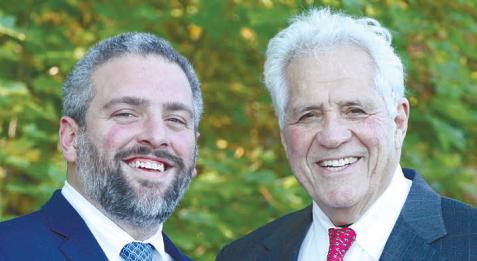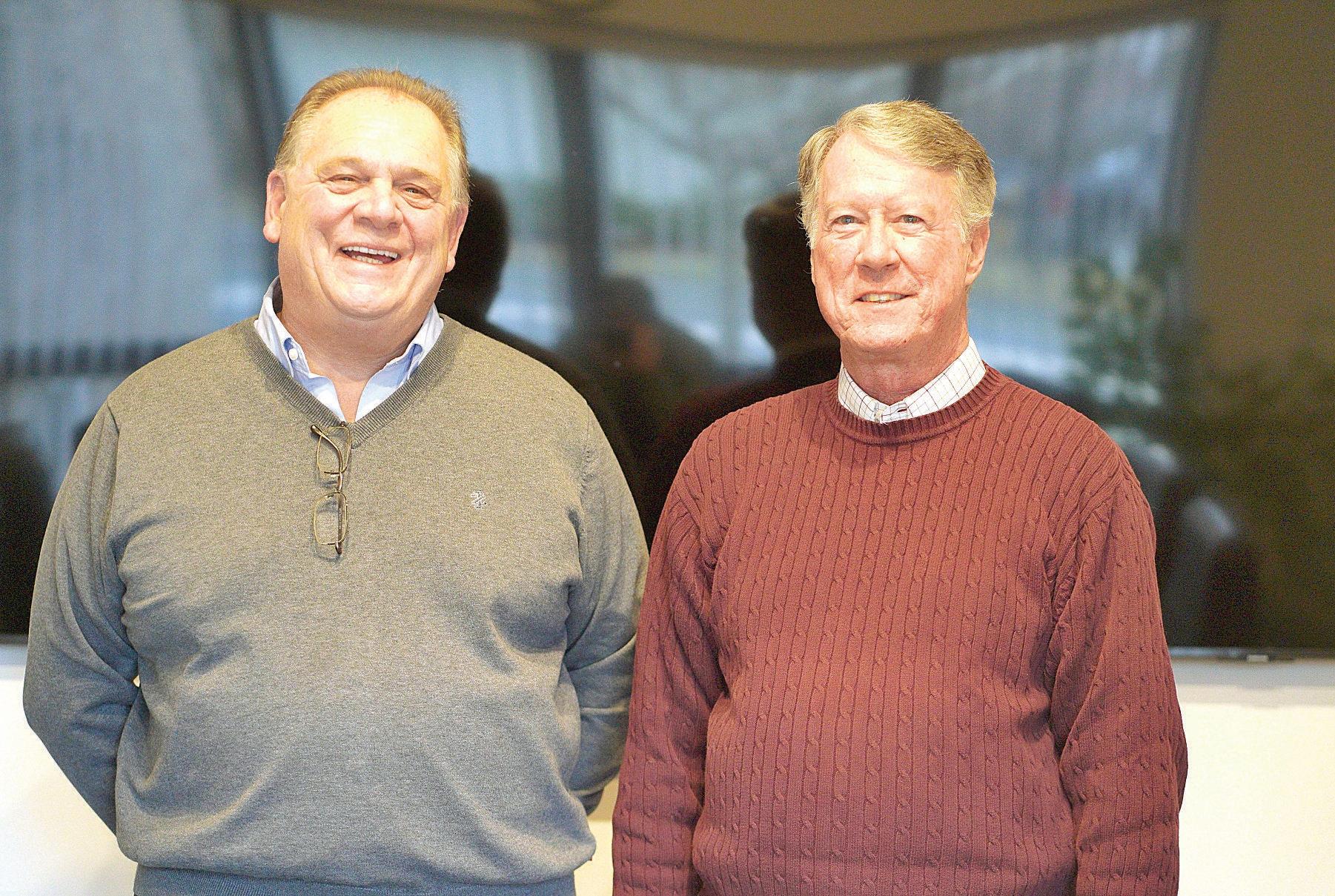
4 minute read
From small business to powerhouse
Hill-Engineers, Architects, Planners marking 75th anniversary
By John Townes
DALTON — It started as a one-person business focused on mechanical engineering for the Berkshire’s once burgeoning paper industry.
Seventy five years later, Hill-Engineers, Architects, Planners Inc. has some 40 people on staff, and has grown into the Berkshire’s largest full-service, architectural, engineering and civil surveying firm.
“Not many companies in the region can do it all,” said Hill’s vice president, Vin Magnano, who has been with the company since the 1970s. “Clients appreciate having everything available under one roof.”
Headquartered at 50 Depot St. in Dalton, Hill provides an array of services to commercial, industrial, governmental, institutional and individual clients. The company has played a key role in building and development projects throughout the Berkshires and beyond, including many familiar structures and sites.
Hill, which also has an office at 44 Spring St. in Adams, handles most aspects of planning and preparation for small, mid-sized and large projects encompassing site and infrastructure development, construction of new buildings, and repairs and upgrades of existing facilities. It is not a construction company, but collaborates with contractors during the building phase.
Specific services include structural, mechanical, and electrical engineering, architectural design, surveying, land-use planning, project management, cost estimations, specifications, environmental sustainability, remediation, and support for clients through the regulatory review and permitting process, among others.
According to Magnano, it’s this diversity that enables Hill to internally integrate all facets of a project, like engineering and architectural design, which increases the company’s efficiency. From a business perspective, this diversified approach also provides Hill with a balance of income sources to handle fluctuations in demand for individual services, and in specific markets and industries.
“We don’t put all of our eggs in one basket,” Magnano said.
Hill primarily serves Berkshire County, the Pioneer Valley and the Springfield area in Massachusetts, and nearby sections of New York, Vermont and Connecticut.
“We describe our market as covering a 50-mile radius although we also do jobs further away sometimes,” said company president Jeff Noble.
Hill will be celebrating its 75th anniversary later this year, and plans to mark that occasion by placing a time capsule in the ground containing items that reflect the company’s activities and history.
MODEST BEGINNINGS
Originally known as W.T. Hill Inc., the company was founded in 1949 by William T. Hill, a former engineer with Crane & Co. The firm originally focused on providing mechanical engineering for the pulp and paper industry. Founded in 1801, Crane & Co. supplies currency paper to the U.S. government, and has been the government’s sole supplier since 1964.
Over the years, Hill slowly added services and began to take on clients in other categories. When Magnano joined the firm in the 1970s, Hill only had about a dozen employees on staff.
In 1980, a group of five employees purchased the company’s fixed assets and reputation, and founded Hill Engineering, Inc. The company changed its name to Hill-Engineers, Architects, Planners, Inc. in 1987. Hill is a privately held C-Corporation, a business structure that allows the firm’s owners to be legally separate from the business itself. It allows the company to issue shares and pass on profits while limiting the liability of both the shareholders and the directors, according to Investopedia.com. C corporations are owned by the shareholders, all of whom own stock in the company.
Under this structure, C corporations can have an unlimited number of inves- tors. One of the shareholders main tasks is electing the firm’s board of directors.
Hill’s diversification and expansions resulted from strategic planning and circumstances that arose along the way, according to both Magnano and Noble.
“In addition to deliberate steps to expand, our evolution has also been driven by opportunities that presented themselves, such as when a client would ask for a service we didn’t do at the time,” Noble said. “If the service was a logical fit, we’d add it.”
As an example, Noble said Hill expanded it services a few years ago when it acquired West Stockbridge Enterprises, a civil surveying firm.

“Land surveying was not something we had been looking to get into,” Noble said. “But when the chance to acquire that business came along, it made sense. So now, if a client has a parcel of land, we can offer everything from the initial site survey through other phases.”
Hill’s earlier movement to expand beyond the paper industry was also an outgrowth of the company’s original activities.
“Initially, we only worked on buildings when they housed some aspect of a paper operation,” Magnano said. “But people in other industries noticed what we did and started coming to us for those services, too.”
Broadening the company’s services was also necessary as the Berkshire paper industry began to decline.
“Being able to serve clients in other industries made up for that,” Magnano said.
Hill added a full range of architectural services to its portfolio when Noble, a certified architect, joined the firm in 1986.
This allowed the company to expand its scope beyond industrial facilities into other forms of development and construction. Today, Hill’s projects also include scientific labs and technology centers, residential and commercial developments, corporate offices, hospitals, resorts, schools, roads, parks, solar arrays, churches, and many others.
Hill adapted to the increasing emphasis on environmental stability when it joined the Green Building Council, which gave the company the credentials and capacity to design LEED certified green buildings.
Being involved in the preparation of projects means that at times Hill’s services overlap, which places the company in competition with construction companies and other contractors. But those relationships are symbiotic. “We understand what contractors need and we work together, well,” Noble said.
On some projects, Hill hires contractors. On other projects they are retained by a contractor to perform specific services.









